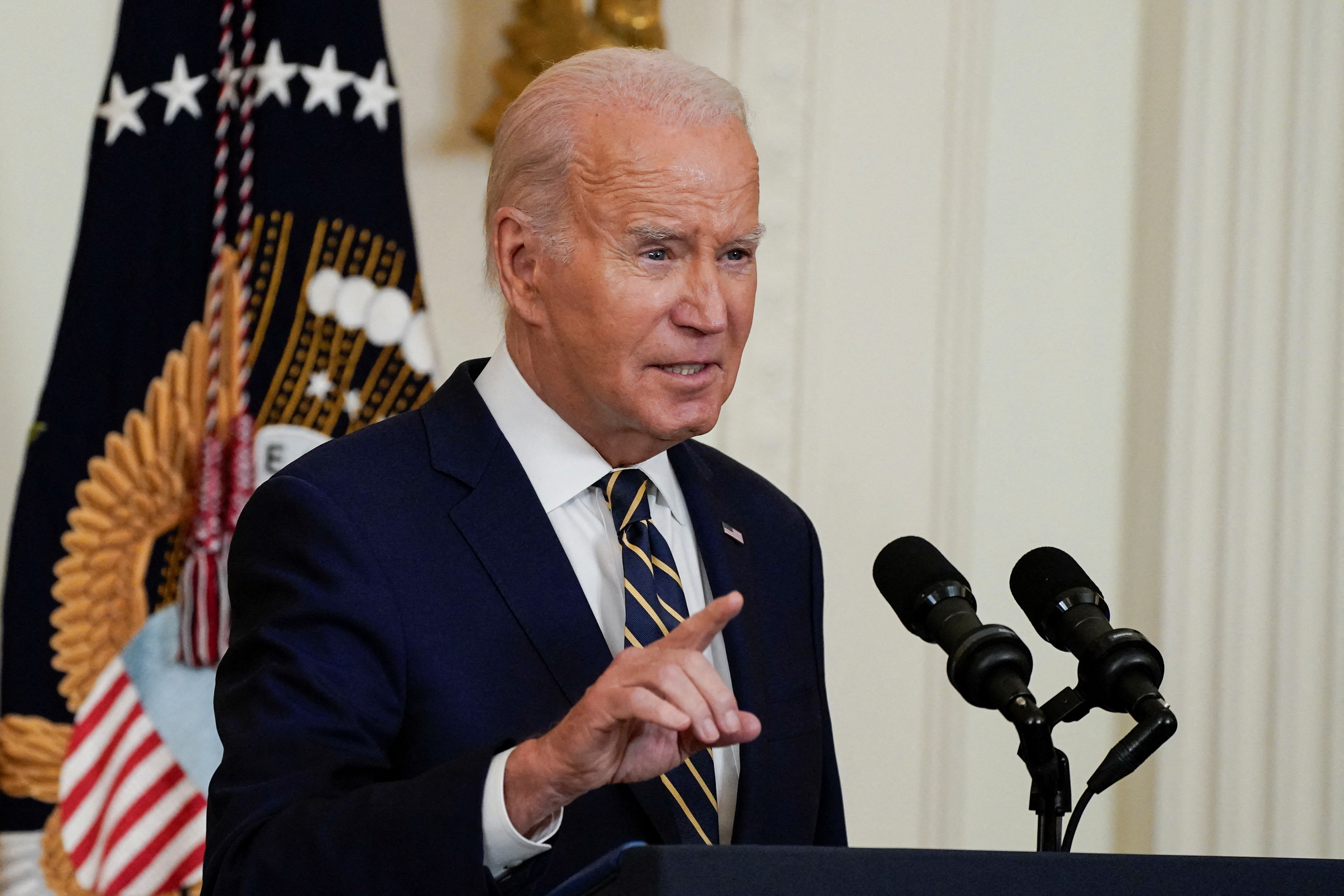
US President Joe Biden delivers remarks about access to mental health care in the East Room of the White House in Washington, US, July 25, 2023. REUTERS/Elisabeth Frantz/File Photo
NEW YORK/WASHINGTON (Reuters) – The White House on Wednesday will outline its plans to block some U.S. investments in sensitive technology in China and will require government notification of other investments, a senior government source told Reuters.
The plans are intended to prevent US capital and expertise from helping develop technologies that could support China’s military modernization and threaten US national security.
Reuters reported on Friday that President Joe Biden is expected soon to issue the long-awaited executive order to scrutinize outgoing investments in China’s sensitive technologies this week.
The senior government source said it was expected on Wednesday. The White House declined to comment on Tuesday.
The administration is expected to target active investments such as US private equity, venture capital and joint venture investments in China in semiconductors, microelectronics, quantum computing and artificial intelligence.
Sources said most of the investments seized under the order would require the government to be notified. Some transactions will be blocked.
Biden administration officials have stressed for months that any restrictions on US investment in China would be narrowly targeted.
“These are tailor-made measures,” National Security Adviser Jake Sullivan said in April. “They are, as Beijing says, not a ‘technological blockade’.”
The regulations will only affect future investments, not current ones, according to a person familiar with the executive order.
It is expected to be implemented next year, the person said, after multiple rounds of public comment, including an initial 45-day comment period.
Organizers plan to issue an advance notice of proposed rules to further define the scope of the program and a comment period to solicit public feedback before making a formal proposal, another person familiar with the matter said.
The first person said it’s not likely to cover passive investments or securities.
The New York Times reported on Tuesday that the Biden administration plans to require companies that invest in a broader range of Chinese industries to report on such activity, giving the US government significant insight into financial transactions between the US and China.
Sources told Reuters earlier that the restricted semiconductor investments are expected to follow export control rules for China issued by the US Commerce Department in October.
Emily Benson of the Center for Strategic and International Studies (CSIS), a bipartisan policy research organization, said she expects investments in artificial intelligence to be banned for users and military uses, and that other investments in the sector would only require government notification.
Benson said the onus is on the administration to determine what falls into the military category.
“They will have to draw a line as to what constitutes a military application of AI, and define AI,” said Benson, director of the CSIS Project on Trade and Technology.
The person familiar with the matter said that regulations around AI are still being developed. The same applies to quantum computing, the person said, but it is expected to ban some sensors and other things related to the technology.
The person added that there might be possible exceptions related to universities and research.
(Reporting by David Shepherdson and Karen Freifield) Additional reporting by Idris Ali. Editing by Lincoln Feast and Jonathan Otis
Our standards: Thomson Reuters Trust Principles.

“Beer aficionado. Gamer. Alcohol fanatic. Evil food trailblazer. Avid bacon maven.”
